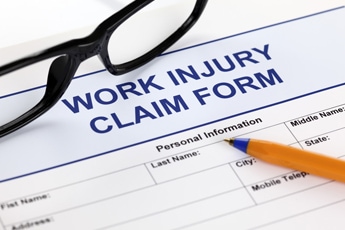Stress is a global phenomenon and we are all often stressed out at work. However, is a stress-related workers’ compensation claim feasible? Is the evidence provided by a medical records review sufficient to substantiate your claim? Stress-associated claims are not typically workplace-related injury claims and the claimant may find it difficult to prove his/her case. Unlike physical injuries, stress-related injuries are psychological in nature and you need a higher standard of proof. Stress is a natural response that all people experience when faced with situations that create increased anxiety, and could lead to mental distress, emotional breakdowns and sometimes even physical symptoms. Workplace psychological injuries could include disorders such as depression, anxiety, burnout, post-traumatic disorder and adjustment disorder. If stress causes permanent impairment, it may be compensable under the workers’ comp laws of the state. However, not all states allow workers’ compensation to cover claims for emotional distress and the requirements vary from one state to another. The lack of coverage is mainly due to the fact that the cause of mental illnesses can be challenging to prove.
Understanding the relationship between workplace stress and certain mental illnesses, some states have taken positive action by adding stress-related injuries to what is covered under workers’ compensation.
- In New Jersey, workers’ compensation claims are made pursuant to Title 34 of the New Jersey Statutes Annotated. Claimants must establish that they were employees, and that the injuries were caused while they were at work. This requirement holds true for every state in the U.S. Compensation is mostly in the form of temporary benefits (wages) and/or medical costs. If the injured person is looking for a permanent award, he/she must establish that the injury resulted in a “permanent” condition which has permanently impacted the use or function of a body part either partially or totally.
- Workplace stress is not given that much importance in Texas workers’ compensation law, according to the Workers’ Compensation Institute. The state does not cover mental illness caused by chronic stress at the workplace. Any mental health and trauma claims must be clearly associated to a particular event, such as an accident. Besides, the claimant must be able to prove a clear association between an event and the specific mental health concern.
- In California, workers’ compensation statutes provide the requirements for an employee to recover compensation for a stress-related claim. Pursuant to the California labor law, a mental injury can be compensated if there is a diagnosed mental disorder that caused the disability or the need for treatment. The injured worker has to prove that the actual events of the employment were primarily responsible (51%) for the injury. The worker’s previous medical history, personal/family issues, and financial/medical issues constitute the burden of proof. In addition to this, the employee must have been in the service of the employer for at least 6 months, which need not be continuous. Stress claims in the state must be supported with the treating physician’s testimony.
- Florida allows stress-related claims only if some sort of physical trauma follows the stress. This injury must be available via a medical records review, and must be clearly and convincingly presented by a licensed psychiatrist. The evidence must meet criteria in the latest edition of the American Psychiatric Association’s diagnostic and statistical manual.
Stress-related workers’ compensation claims in any U.S. state must be accompanied by the necessary medical evidence. Medical record retrieval and review become indispensable, and the attorney will have to closely evaluate the case and determine if the claimant has a genuine workers’ compensation claim. A psychological injury is compensable only if it arises out of or in the course of employment. The job must have been a major contributing factor to the injury. Psychological injuries arising out of “reasonable action” such as a fairly conducted poor performance review an employer might take may not be compensable.




